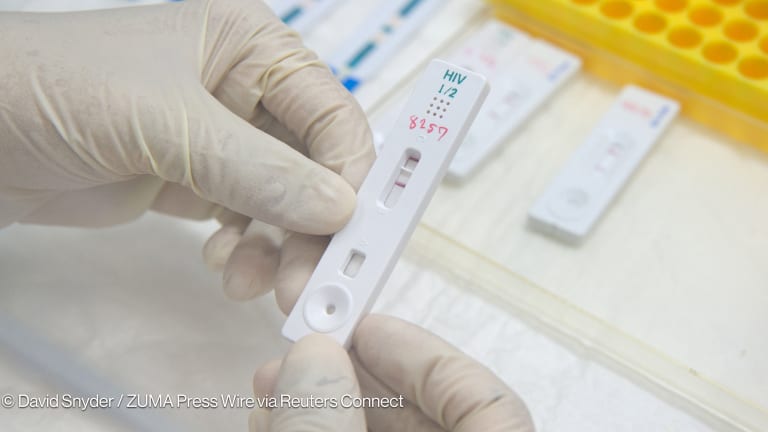Medicines might have saved the lives of Elizabeth Mebele’s two sisters, who died of AIDS complications within the last five years. As Mebele marched outside last week’s International AIDS Conference in Durban, South Africa, she recounted how they were turned away from care. “There was no treatment, that’s why they passed away,” Mebele said. “Things are not reaching the right people.”
Access to lifesaving antiretroviral therapy is exactly what protestors demanded 16 years earlier at the same IAC, also held in Durban. Their call, echoed by former South African President Nelson Mandela in his closing address, marked a turning point. Soon after, global drug prices began to fall and treatment became more widely available.
Now, progress may be reversing again. Scientists say the tools are available to end the AIDS epidemic. But public health interventions are running out of money. And even as officials talk about the approaching end of a pandemic that has killed more than 35 million people, the goal of eradicating AIDS is looking ever further away.
Read more stories in this series:
► Funding shortfall threatens 'test and treat' for HIV and AIDS
► How 3Ps can deliver new drugs for world's biggest killer
► Barriers to PrEP: Rollout of this HIV prevention tool is hitting bumps
► Innovating to the last mile: How access to medicines can end epidemics for good








